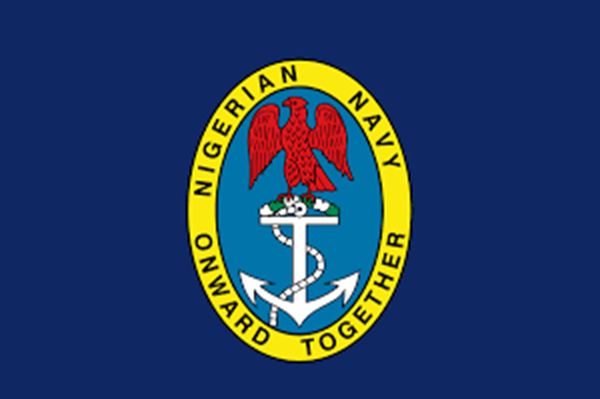Nigeria may have lost between ₦10bn and ₦509bn between 2015 and 2021 as a result of vessel arrests carried out by the Nigerian Navy, according to new research by the Sea Empowerment and Research Centre.
The study, signed by the centre’s Head of Research, Mr Eugene Nweke, and obtained exclusively by The PUNCH, warns that while the arrests highlight the Navy’s enforcement capacity, they also point to deeper structural challenges in Nigeria’s maritime sector, with huge economic consequences.
Between 2015 and 2021, the Nigerian Navy arrested 333 vessels for various infractions, including piracy, crude oil theft, illegal bunkering, illegal fishing, and trade violations. The data was confirmed by the Flag Officer Commanding Western Naval Command, Rear Admiral Gregory Oamen, at the 3rd MARAN Annual Lecture (MAMAL 2025) in Lagos.
Represented by Capt Olanrewaju Oginni, Commanding Officer of NNS Thunder, Oamen disclosed that while the Navy had boosted its capacity with the acquisition of 21 new vessels in the last decade, challenges remain in logistics and operational deployment.
“In fact, we have more ships now than we have the logistics to put to sea,” Oamen said. He added that all arrested vessels were handed over to the appropriate government agencies for prosecution or further action.
The Navy’s strong enforcement measures have coincided with a significant drop in piracy on Nigerian waters. According to the Nigerian Maritime Administration and Safety Agency, Nigeria has recorded no piracy incidents in recent years, leading to the removal of the country from the International Maritime Bureau’s piracy-prone list in 2021.
Despite this achievement, SERC argues that arrests alone cannot be taken as a success metric, given the ripple effects on trade, customs revenue, investor confidence, and logistics efficiency. Nweke explained that even if only 20 per cent of the arrested vessels were commercial, the economic damage would be significant.
He estimated losses in three scenarios. The first being the low impact: ₦10.2bn cargo losses, ₦1.2bn customs revenue losses, assuming most seizures were small craft.
He said the second is the medium impact: ₦101.8bn cargo losses, ₦12.2bn customs losses, ₦8.1bn disruption costs, assuming feeder and container vessels, while the next is the high impact: ₦509.2bn cargo losses, ₦61.1bn customs revenue losses, ₦40.7bn disruption costs, if significant seizures involved oil tankers or high-value cargo.
“These figures exclude the much larger losses from crude theft and illegal bunkering,” he said. The research further noted that prolonged vessel detentions often lead to higher trade costs, such as increased insurance surcharges, security premiums, and rerouting expenses. These in turn drive up consumer prices and weaken Nigeria’s export competitiveness.
SERC insists that enforcement must be backed by transparency in order to prevent avoidable economic setbacks. Nweke urged the Navy to publish detailed records of vessel arrests, including vessel type, cargo value, and final disposition—whether forfeited, fined, released, or prosecuted.
“Arrest statistics are insufficient without context. For enforcement to translate into fiscal accountability, the Navy must provide detailed seizure data. Without this, government and industry cannot quantify actual losses, nor measure the return on security investments,” he said.
He also recommended that inter-agency audits be carried out by the Navy, Nigeria Customs Service, and the Nigerian Ports Authority to reconcile actual economic losses from vessel arrests between 2015 and 2021. “Prosecutions should be fast-tracked to reduce cargo delays and revenue leakage from prolonged detention cases,” Nweke added.
While the Navy’s role in curbing illegal maritime activity remains critical, stakeholders warn that the balance between enforcement and economic stability must be carefully managed. Arresting vessels without timely resolution, clear data, and transparent prosecution processes risks undermining the same trade and revenue streams the country depends on.
Analysts note that Nigeria’s maritime sector is central to its economic recovery, especially in light of dwindling oil revenues and rising debt burdens. As such, ensuring security operations do not inadvertently stifle legitimate trade is seen as a top policy priority.
The SERC report is expected to spark renewed debate among maritime regulators, industry players, and lawmakers on how best to strengthen maritime security while safeguarding Nigeria’s fiscal health.















